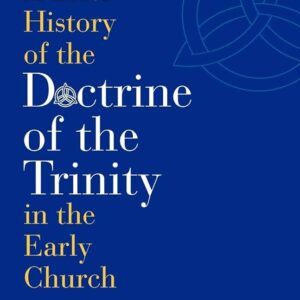A Dictionary of Early Christian Beliefs allows the user to quickly ascertain what the early Christians believed on over 700 different theological, moral, and historical topics, and it functions as an index to the writings of the ante-Nicene writers, specifically as collected in the ten-volume work, the Ante-Nicene Fathers. Why are the beliefs of these early Christian authors important? Because early Christian testimony holds that many, such as Clement of Rome and Polycarp, personally knew the apostles of Jesus. They were approved by the apostles and appointed by the apostles to positions of church leadership. Modern students of church history must largely depend on these and other early Christian writers for information on topics of major import, such as who wrote the New Testament documents and how the Christian canon of Scripture came into being. Furthermore, these early Christians’ interpretation of the Scriptures is among the most valuable commentary on Scripture anywhere. To be sure, none of these writers claimed divine inspiration; nor did they equate their own writings with Scripture. They did, however, claim that they were faithfully passing along the faith that the apostles had delivered to the church.
To comprehend and appreciate what the early Christians have to say a thorough knowledge and grasp of Scripture are indispensable. That is because the early Christians counted all of their fundamental beliefs on Scripture. Nonetheless, a first reading of early Christian quotations from Scripture can be perplexing. Not infrequently, their citations do read the same as do our modern Bibles. There are several reasons for this. First, when quoting from the Old Testament, the early Christians nearly always quoted from the Septuagint (i.e., the Greek Old Testament, including the Apocrypha)—as did the apostles. See SEPTUAGINT herein.] In contrast, modern Old Testament translations are usually based on the Masoretic Text. Secondly, we must remember that the early Christians had no concordances, topical Bibles, study aids, computer Bibles, or even handy personal Bibles. As a result, the early Christians often had to quote Scriptures from memory, which meant they sometimes misquoted a verse or two. Furthermore, particularly in the case of the Latin writers, citations seem to have come from a version or text that differed slightly from later versions or editions.
THE ANTE-NICENE FATHERS AS A SOURCE FOR EARLY CHRISTIAN WRITINGS.
Of course, the Ante-Nicene Fathers are not the only available translations of the pre Nicene writings. Still, I chose the present edition of the Ante-Nicene Fathers as the basis for this work for several reasons. First, the translations in the Ante-Nicene Fathers are usually more literal than more recent translations. Secondly, other sets of translations contain only a small portion of the pre-Nicene writings. Finally, as a practical matter, the Ante-Nicene Fathers is the only set of the pre-Nicene writings affordable to the average person.
Author: David W. Bercot
Format: PDF
Year: 1997
Pages: 711





Reviews
There are no reviews yet.